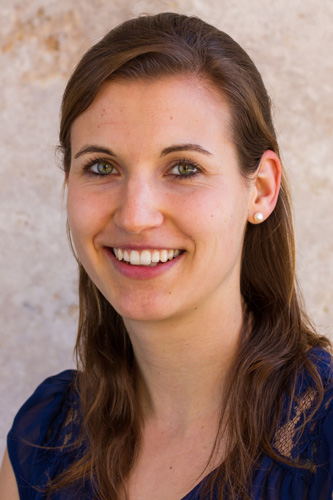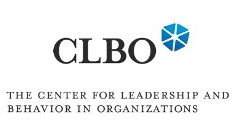|
|
Dr. Antonia J. KaluzaResearch Assistant
Contact Mail: Visitors: Phone: +49 69 798 35292 Office hours: Upon agreement, PEG building, room 5.G014
|
About me
My research is at the interface of social, organizational, health and clinical psychology. First, I am concerned with health at the workplace and, in particular, the relationship between leadership and health. In my dissertation, I examined health-oriented leadership, the health of leaders themselves, and the organizational health climate, among other topics. Besides that, I am also interested in how people think about stress (so-called stress mindset) and how they deal with it (e.g., self-care). In addition to my scientific work, I work as a psychological psychotherapist.
Resume
2019 – present: Research assistant/assistant professor at the Department of Social Psychology, Goethe University Frankfurt
2015 – 2019 PhD at the Goethe University Frankfurt
2015 – 2019 License to practice as a psychological psychotherapist
2009 – 2014 Master’s and Bachelor’s degree in psychology at the Goethe University Frankfurt and Friedrich Schiller University Jena
Research interests
- health at work
- burnout & work engagement
- organizational health climate
- identification
- self-care
- stress mindset
- home office
- leadership
- health-oriented leadership
- health of leaders
- abusive supervision
- digital leadership
- social and clinical psychology
- work and health factors of psychotherapists (in training)
- psychological group interventions
- pain patients
Teaching
I teach social psychology and organizational psychology to bachelor and master students. In seminars and lectures I cover a variety of different topics, e.g. "Organizational Behavior", "Leadership", "Social Attitudes", and "Stereotypes and Prejudices".
(Selected) publications
Scientific publications: Peer-reviewed journals
Kaluza, A. J., & Junker, N. M. (2022). Caring for yourself and others: Team health climate and self-care explain the relationship between health-oriented leadership and exhaustion. Journal of Managerial Psychology, 37(7), 655–668. https://doi.org/10.1108/JMP-10-2021-0567
Kaluza, A.J., Junker, N.M., Schuh, S.C., Raesch, P., Von Rooy, N., & Van Dick, R., (in press). A leader in need is a leader indeed? The influence of leaders’ stress mindset on their perception of employee well-being and their intended leadership behavior. Applied Psychology: An International Review.
Kaluza, A. J., Aydin, A. L., Cordes, B. L., Ebers, G., Fuchs, A., Konietzny, C., Van Dick, R., & Baumann, U. (2021). A sorrow shared is a sorrow halved? Patient and parental anxiety associated with venipuncture in children before and after liver transplantation. Children, 8(8), 691. https://www.mdpi.com/2227-9067/8/8/691/htm
Schuh, S. C., Cai, Y., Kaluza, A. J., Steffens, N. K., David, E. M., & Haslam, A. (2021). Do leaders condone unethical pro-organizational employee behaviors? The complex interplay between leader organizational identification and moral disengagement. Human Resource Management.https://doi.org/10.1002/hrm.22060
Kaluza, A.J., Weber, F., Van Dick, R., & Junker, N.M. (2021). When and How Health-Oriented Leadership Relates to Employee Well-Being – the Role of Expectations, Self-care, and LMX. Journal of Applied Social Psychology, 51, 404-424. http://doi.org/10.1111/jasp.12744
Junker, N. M., Kaluza, A. J., Häusser, J. A., Mojzisch, A., van Dick, R., Knoll, M., & Demerouti, E. (2020). Is Work Engagement Exhausting? The Longitudinal Relationship Between Work Engagement and Exhaustion Using Latent Growth Modeling. Applied Psychology: An International Review. https://doi.org/10.1111/apps.12252
Kaluza, A. J., Boer, D., Buengeler, C., & van Dick, R. (2020). Leadership behaviour and leader self-reported well-being: A review, integration and meta-analytic examination. Work & Stress, 34(1), 34-56. https://doi.org/10.1080/02678373.2019.1617369
Kaluza, A. J., Schuh, S. C., Kern, M., Xin, K., & van Dick, R. (2020). How do leaders’ perceptions of organizational health climate shape employee exhaustion and engagement? Toward a cascading-effects model. Human Resource Management, 59(4), 359 – 377. https://doi.org/10.1002/hrm.22000
Kunzler, A. M., Chmitorz, A., Bagusat, C., Kaluza, A. J., Hoffmann, I., Schäfer, M., Quiring, O., Rigotti, T., Kalisch, R., Tüscher, O., Franke, A. G., van Dick, R., & Lieb, K. (2018). Construct validity and population-based norms of the German Brief Resilience Scale (BRS). European Journal of Health Psychology, 25(3), 107–17. https://doi.org/10.1027/2512-8442/a000016
Kaluza, A. J., Schuh, S. C., Kern, M., Xin, K., & van Dick, R. (2018). The importance of organizational health climate for employee health: A multilevel cascading model. Academy of Management Proceedings, 1, 11709. https://doi.org/10.5465/AMBPP.2018.157
Book chapters and others
Kaluza A.J., Junker N.M., van Dick R. (2021) „Replace „I“ with „we“ and „illness“ becomes „wellness“ – Wie gemeinsame soziale Identität das Wohlbefinden steigern kann“. In: Michel A., Hoppe A. (eds) Handbuch Gesundheitsförderung bei der Arbeit. Springer. https://doi.org/10.1007/978-3-658-28654-5_12-1
Kaluza, A. J. (2020). Gesundheitsförderliche Führung – Wie Führungskräfte für die Gesundheit ihrer Mitarbeitenden und ihre eigene Gesundheit sorgen können. Personal in Hochschule und Wissenschaft entwickeln, 3, 83 – 95.
Junker, N. M., & Kaluza, A. J. (2018). Möglichkeiten und Grenzen im digitalen BGM aus Unternehmenssicht. In D. Matusiewicz & L. K. Kaiser (Eds.), Digitales Betriebliches Gesundheitsmanagement (S. 631–643). Wiesbaden: Springer Gabler. doi: 10.1007/978-3-658-14550-7_46
Kaluza, A. J. (2018). Der Chef macht’s vor. Gesundheitsklima im Unternehmen. etem – Magazin für Prävention, Rehabilitation und Entschädigung (Herausgeber: Berufsgenossenschaft Energie Textil Elektro Medienerzeugnisse), 2, 16-17.





